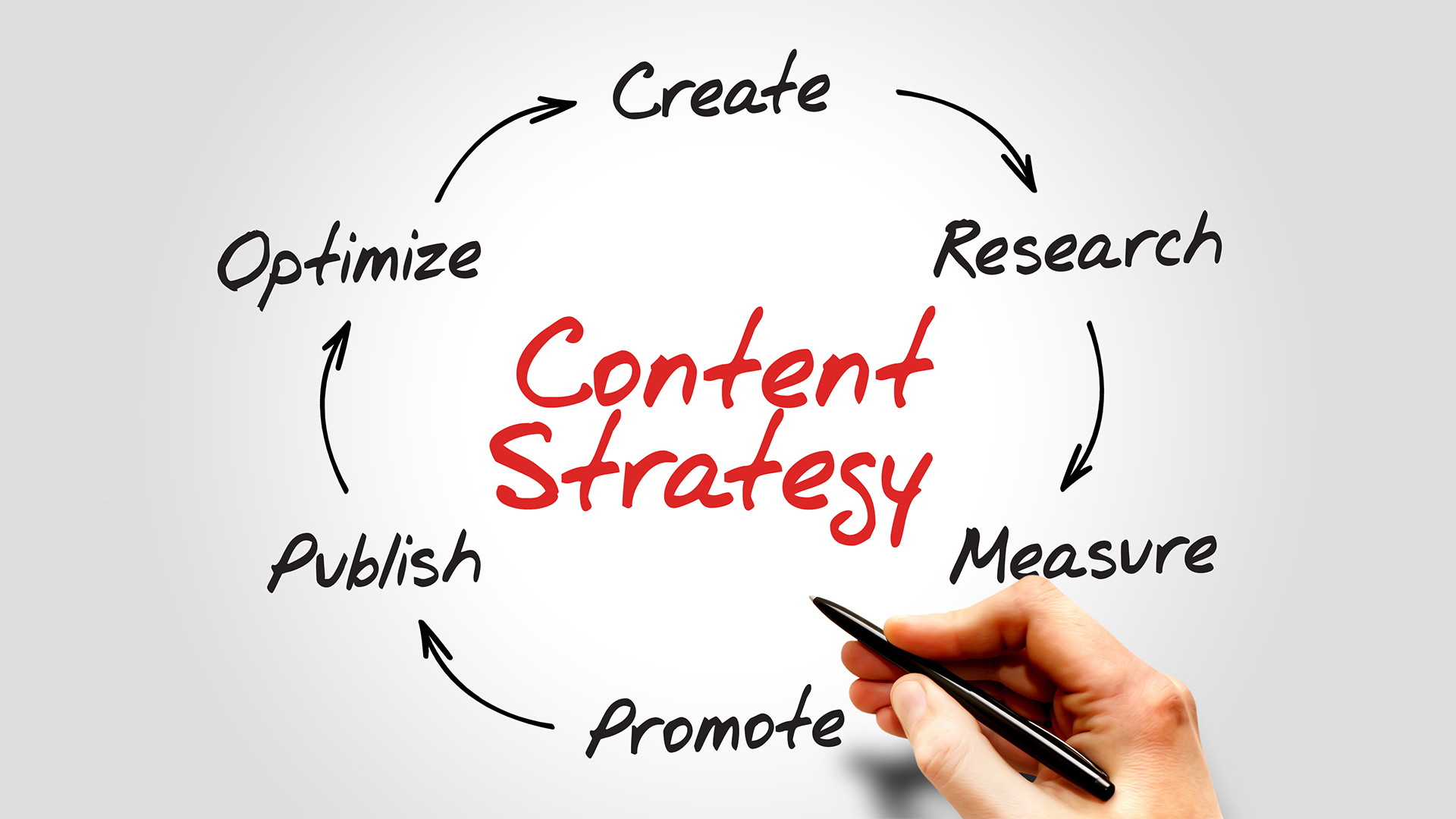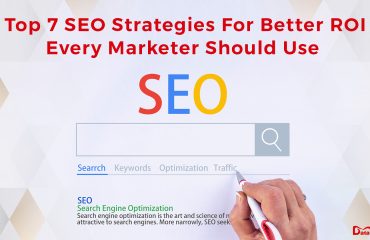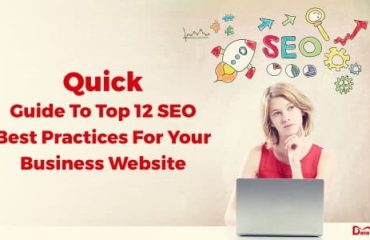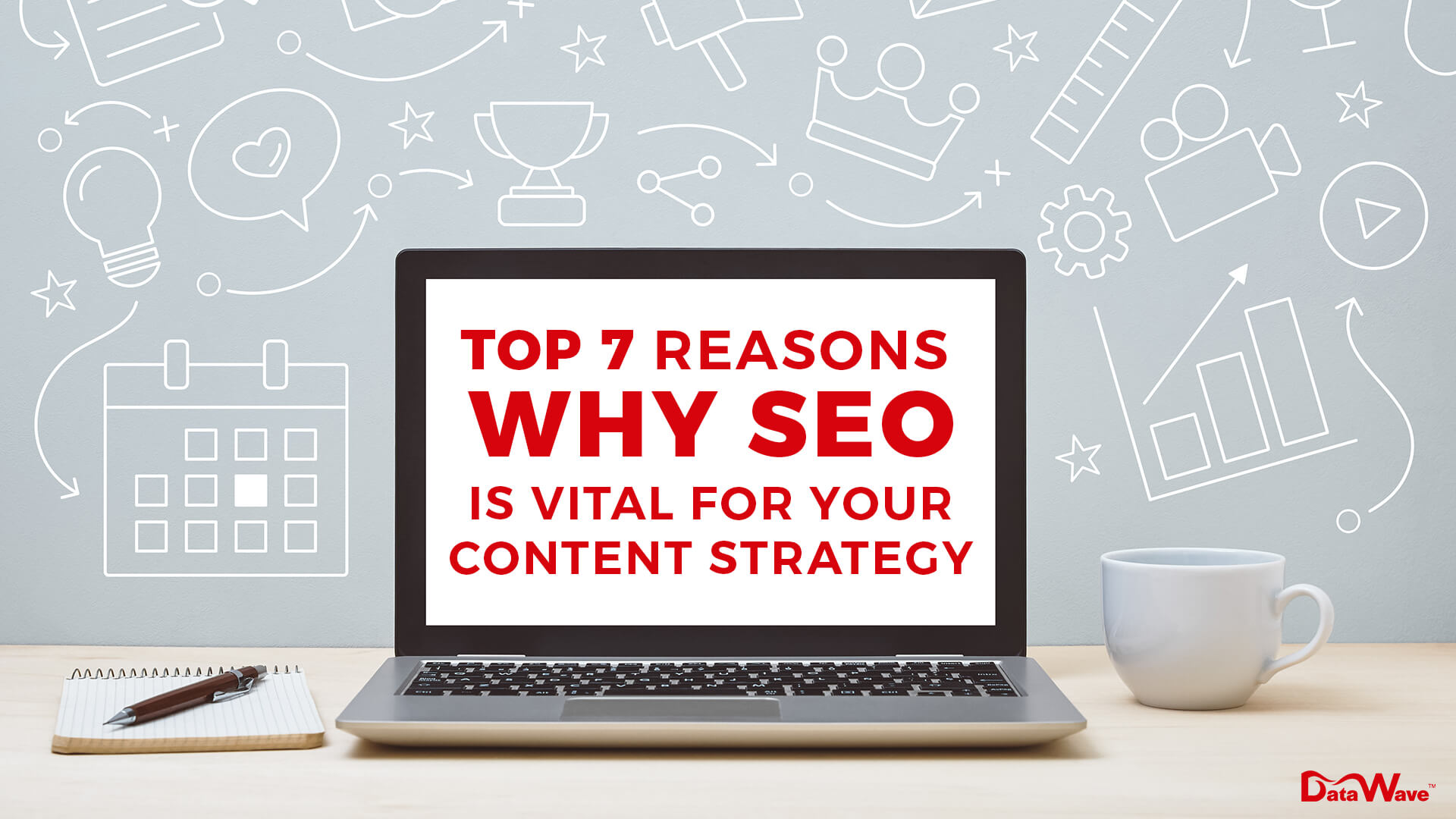
Table of Contents
Did you know that as of the first quarter of 2022, there are over 5.16 billion Internet users accessing around 2 billion websites, and making 5.6 billion search queries daily globally … on Google alone?
Today, any business running a website without an astutely planned SEO content strategy in place is losing out on a lot.
An effective, meaningful content marketing not only drives quality traffic to your business website, but also encourages the new visitors to keep frequenting your website and conduct business.
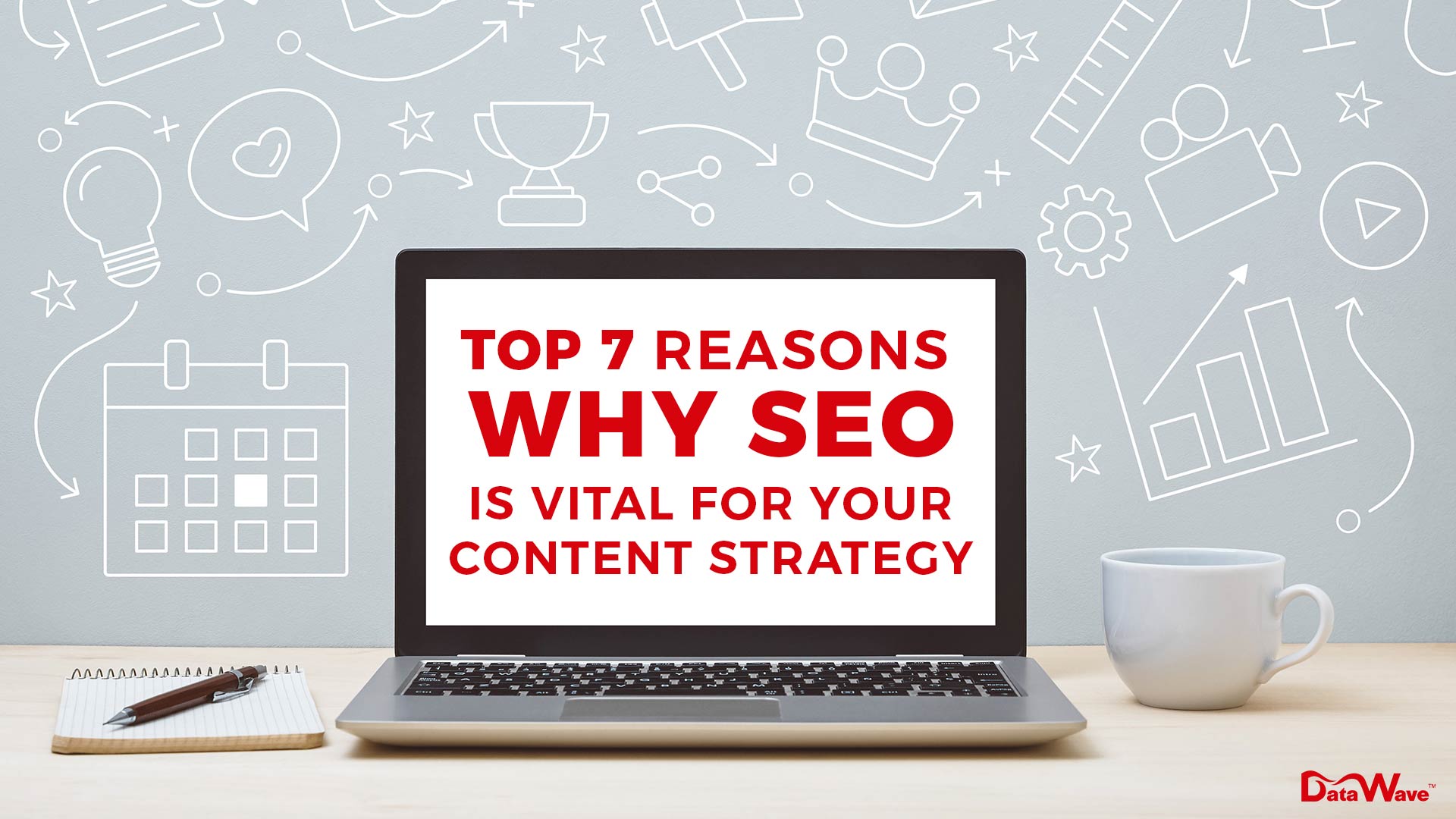
Consequently, the key to great content marketing and generation of high-quality inbound leads is the pragmatic implementation of SEO tweaks as a part of both on page SEO and off page SEO.
Running a business website without any SEO strategy is like fishing with a line sans a hook.
Even if your website has high domain authority, a new content will still take anywhere from two to six months to start ranking. This makes blending SEO in your content strategy all the more important.
Here are the top 7 reasons that elucidate why SEO is vital for your content strategy.
-
Capture the user’s search intent

Recall the search query count mentioned above. Search intent is the intangible ‘expectation’ behind a user’s query. It is futile to post content that’s irrelevant to users’ intent and it is unrealistic to expect a spike in organic traffic afterwards.
For instance, if your business website’s category is hospitality industry, and a user looks up ‘hotels in new york’ on Google, then your content must provide not only the hotel list but also the occupancy rates, season’s discounts, flights to New York, hotel ratings, sightseeing around the city, best season to visit, any particular standing guidelines/laws, weather readiness tips etc.
It is transparent that your content must capture as big a chunk of searches as possible and also the unobvious facets of a seemingly plain query in order to prompt the user into making a transaction.
Search engines factor-in signals like time on page, content quality, internal & external links, bounce rate, keywords, page speed, on-page optimizations etc. to determine how precisely your content resolves user’s query. By the by, did you know a one-second delay in page loading speed slashes your e-commerce conversions by 7%?
Linking the Search Console with Google Analytics enables you to keep an eye on the queries which bring users to your website.
This can help you analyze site’s impressions, clicks, position on Google Search and fix other related issues.Therein lies the import of SEO in content strategy. Implementing SEO strategy is ‘anticipating’ and intuitively forecasting what a user will desire to experience through a search.
-
Increase the visibility of your website

An SEO optimized website generates at least 200% additional organic search traffic. Incorporating schema markup in your website’s code makes its content more search engine friendly, crawl worthy, organized & presentable.
It boosts the CTR (click through rate) of your web pages by making them more visible.
Assume there is a web page (sans any markup applied) about Tesla Inc. with words “Elon Musk”. The SERP will only create an entry for “Elon Musk”. However, with proper markup applied to the page, the search engine recognizes that “Elon Musk” is the CEO of Tesla and the engine displays his name in search result as “Elon Musk: CEO” (and other snippets of info on him), which is far more relevant to the user. Long story short, you need SEO ‘hacks’ like this that make your web pages more visible among the users. You should definitely check out (if you haven’t already) Google Structured Data Markup Helper and Google Structured Data Testing Tool.
These tools will enable to apply markup and preview how your web page will appear in Google search results, especially if yours is an e-commerce website.
-
The hidden user

Developed an excellent website content strategy? The content is ready as well? Good. Now shift your attention towards a user everyone more or less skips over: the search engine.
The search engines want to know the importance of your content for a specific topic (or range of topics). You’d want to include optimizations like:
- Including keywords in the URLs, alt text and headlines to amplify the relevance of your content to niche topics.
- Creating content distribution plan across platforms for augmenting engagement, increasing outreach & establishing backlinks, in addition to boosting traffic.
- Investing in influencer marketing for generating more backlinks and word-of-mouth marketing.
When your optimization efforts result in a satisfied user (or a new lead/customer), the search engines promote your content in the SERPs, thereby fetching your business more traction through the consumers of your content.
A website without any SEO content strategy may have first-rate content, but no readers. Also, a technically optimized website without quality content will see low engagement. In fact, the search engines will to it.
Furthermore, Google’s RankBrain is a system that looks at keywords as things (‘entities’, to be precise) rather than just strings of letters.
It assigns a unique identity to every entity and uses it, in conjunction with its machine learning algorithms, to gauge user’s search intent when a query is fired. It is advisable to use synonyms of keywords in your content to some extent so as to cover the intent scope of users maximally.
RankBrain takes into account environmental contexts (e.g. location of the user firing the query) and extrapolates meaning when there had been none.
-
Keywords have mutated, search engines have evolved

Search keywords of users have mutated drastically over the years & search engines have evolved in ‘intelligence’ as well.
From the easygoing days of ‘headphones’, it is now ‘where can I get my headphones fixed in Seattle’ because the users know Google is amply sophisticated to yield specific results to their long-tail keywords.
This calls for frequent fine-tuning of SEO content strategy on your part.Until recently, maximizing the chances of ranking meant placing specific keywords in certain sections of your content (such as meta description, H1 & H2 tags, first paragraph of the content etc.).
But things have changed. There are countless possible variations for keywords today and Google has evolved not only to capture the variations but the synonyms and their contexts as well (remember RankBrain above?).
That means merely posting content regularly won’t gain traction among the masses. Publishing an engaging long-form content is crucial nowadays as against embedding exact-match keywords in the content.
In fact, long-form blog posts generate 9 times more leads, with 81% of consumers trusting the info in blogs and, what’s more, blogging rules the content marketing strategies.
-
Optimize for the mobile

At Datawave, one of the best SEO agency in HK, we make sure the strategy is not just for the desktop users while charting out an SEO strategy for a client.
You must know that over 54% of all online traffic comes from mobile devices nowadays, meaning mobile traffic has overtaken desktop traffic.
With 80% of all Internet users owning a mobile phone, you must ensure the content you’re about to publish is mobile friendly. Obviously, you don’t want to lose on traffic.
Majority of the digital populace is active on social media. Of all the B2B audiences, 82% choose LinkedIn, 66% go for Twitter, 64% use YouTube and 41% access Facebook as their preferred SMP (social media platforms).
Your content’s link can be shared on SMP apps and those SMP links can appear in search engine results in response to a query. Factor this aspect in your content strategy.
Besides, mobile-first indexing has been official since March 2021. If you own a separate mobile website, its URL will get indexed on priority against the desktop version.
-
Monitor your content strategy’s success … & refine it

Track how your website content strategy is faring.
- Is it fetching you unpaid search results?
- Are the search engines indexing your web pages with some consistency (i.e. is your content deemed valuable by the search engine)?
- Is your SEO strategy effective? Are you seeing more conversions?
- Has your website’s SERPs ranking improved over time?
In addition to measuring the success of your SEO strategies, tracking their progress brings to light more areas of improvement which can be worked upon for tweaking the pages to provide more value to the users. And yes, tracking is indeed a part of SEO.
Do spend some time reviewing the content of higher ranking websites within your niche, plan on content that is more valuable & impactful than theirs, create it and share it on your socials. All this costs you nothing & you stand to gain everything.
-
Boost in credibility

If your website content is coherent with a well-crafted SEO strategy, it will rank high on the SERPs over time. As we know, a great ranking on SERP implies the search engines consider your web pages as having high-quality content & trustworthy.
Consider blending SEO and PPC (pay per click) marketing strategies. PPC helps your website to top the paid search results whereas the same goal is reached organically through SEO.
Your brand’s credibility improves when both results are seen by users at the top of SERPs. A high-ranking content page can do better when it is used in PPC advertising.Boosted website credibility nudges users to feel more comfortable in transacting business with you i.e. more leads and conversion on the way.
Of course, this doesn’t mean you stop improving your site and adding new content to it (or updating old ones). Keep fine-tuning the website parameters & intensify your keyword research to improve your website’s ranking even further.
Need help with your SEO content strategy? Our team of experienced SEO experts at Datawave, the Hong Kong SEO company, has consistently managed to improve rankings and web traffic within 6 months of commencement of SEO.
At Datawave, SEO of web pages entails fine-tuning web pages for load speed, handling redirections, gauging mobile responsiveness and many other tweaks that enable search engine algorithms to ‘sense’ your content.
For a detailed info on how we’ve turned SEO into a holistic science, feel free to contact us today.





